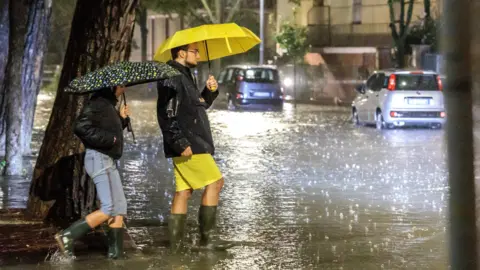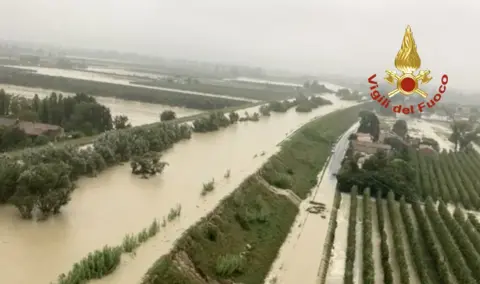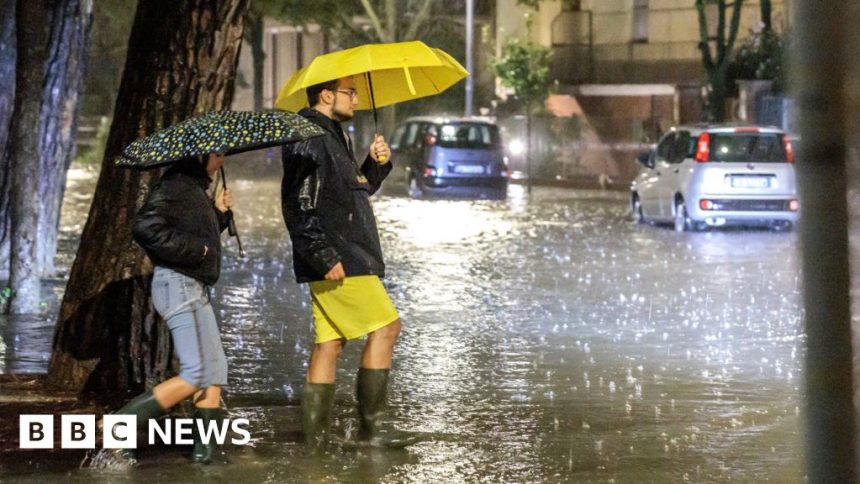Storm Boris batters Italy after wreaking havoc in central Europe
 EPA
EPAStorm Boris is battering the north-east and central regions of Italy, days after causing widespread flooding in central Europe.
More than 1,000 residents in the north-eastern region of Emilia Romagna have been evacuated, while towns in the central region of Marche of Italy reported serious flooding and disruption. There are no reports of any casualties.
Schools across Emilia Romagna have closed. Some roads were impacted by landslides and railway traffic has been severely disrupted.
Authorities warned residents to stay out of their basements and to relocate to the upper floors of their homes.
Schools, libraries and parks were shut in Ravenna, and the University of Bologna cancelled exams and lessons.
The city of Faenza has been the worst-affected, with the levels of the two rivers crossing it rising rapidly overnight.
Residents quoted by local media said they had had to leave their homes in dinghies in the middle of the night. High river levels have also caused the sewage system to overflow.
But authorities in nearby Bologna said on Thursday morning that river levels in the city were under control, although the red weather alert is set to continue until Friday for most of the region.
For residents of Emilia-Romagna, Storm Boris echoes the severe – and deadly – flooding the region faced just over a year ago.
In May 2023, 13 people died after six months’ rainfall fell in a day and a half, leading to more than 20 rivers bursting their banks.
 Vigili del Fuoco
Vigili del FuocoTens of thousands of people had to flee their homes and the flooding caused billions of euros of damage.
Italy is the latest country to suffer the fury of Storm Boris – a low pressure system which swept across Poland, the Czech Republic, Romania and Austria, killing at least 23 people.
Although the worst appears to be over across much of the region, the levels of the Danube River are still rising in Hungary. Prime Minister Victor Orban said on Wednesday the water level in Budapest was expected to peak on Saturday afternoon or evening, but that it would be lower than record levels seen in 2013.
The leaders of Poland, the Czech Republic, Slovakia and Austria are due to meet European Commission President Ursula von der Leyen in Wroclaw later today to discuss aid for the flood-hit region.
The city, in southwestern Poland, has also been threatened by high river levels for days.
The recent events in central Europe fit with expectations of more extreme rainfall in a warming world, although it is not yet possible to quantify exactly how much of a role climate change has played.
However, climate scientists have been warning for years about extreme rainfall events like these occurring as the planet warms.







